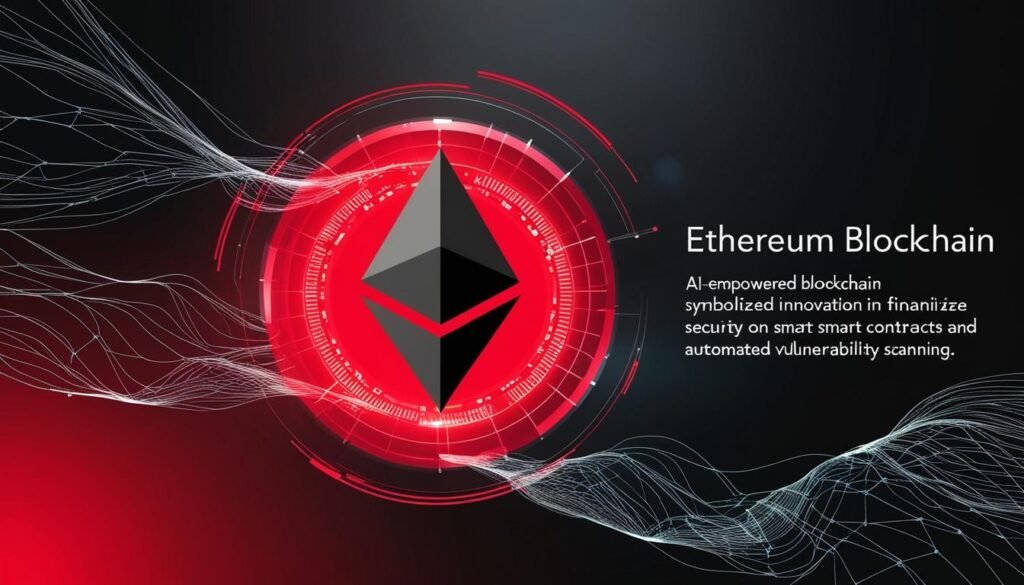As businesses seek innovative solutions, the integration of AI with Ethereum presents significant opportunities for improving efficiency and security in blockchain technology.
As the demand for innovative solutions continues to grow, businesses are increasingly incorporating Artificial Intelligence (AI) into their operations, significantly influencing various industries. Among these advancements, the integration of AI with blockchain technology, particularly Ethereum, stands out due to its potential for efficiency and security improvements.
Ethereum, a leading blockchain platform known for its smart contracts, has garnered attention from major financial players, including Mastercard and Visa, who are exploring its capabilities to facilitate faster and more efficient payment systems. However, while the adoption of Ethereum is on the rise, it still faces challenges related to security and efficiency that could be mitigated through AI technologies.
One significant benefit of integrating AI is its ability to identify vulnerabilities in smart contracts more effectively than traditional tools. Smart contracts automate agreements based on pre-defined rules, leading to increased efficiency. Yet, these contracts are susceptible to vulnerabilities, such as reliance on unreliable data feeds and simultaneous function calls, which can expose them to security risks, as explained by a piece from “What’s Trending.” AI-powered automated vulnerability scanning can address these issues by analysing patterns and extensive datasets to detect potential weaknesses in the network.
In addition to improving security through vulnerability analysis, AI can also generate smart contract codes. As human error can create cracks in code during development, AI offers a simpler method to create secure contracts that adhere to defined security standards. Machine learning techniques can refine this process by learning from past errors and successful examples of smart contract code, thus enabling developers to produce higher quality codes across different blockchains.
The volatile nature of cryptocurrency investment further complicates the landscape for potential investors, with risks heightened by competition from alternative blockchain platforms like Cardano, Solana, and Polygon. An AI-driven evaluation model could transform this scenario by systematically analysing transaction records, social media trends, and financial indicators to predict potential risks associated with cryptocurrencies. By utilising machine learning, this approach could pave the way for a more secure investment environment as digital assets move closer to becoming legal tender globally.
Despite these promising applications, the integration of AI into the Ethereum ecosystem is not without its challenges. According to the report from “What’s Trending,” effective AI implementation relies on access to large amounts of accurate and unbiased data, which can be difficult to obtain. Additionally, AI’s role in cybersecurity remains under scrutiny, as concerns over data handling, ethical considerations, and algorithmic transparency persist. There is a pressing need for improved understanding and control over AI systems, particularly within decentralised environments, to fully harness their potential without compromising user safety.
As businesses continue to innovate, the blend of AI and Ethereum presents opportunities for efficiency and security enhancements across various sectors. With ongoing collaborations between decentralised platforms and established companies, the future of blockchain technology seems poised for substantial evolution, driven by the capabilities of AI.
Source: Noah Wire Services
- https://www.rumblefish.dev/blog/post/blockchain-and-ai-benefits/ – Corroborates the benefits of integrating AI and blockchain, including enhanced data security, improved data integrity, and increased operational efficiency.
- https://www.globaltrademag.com/unleashing-innovation-integrating-ai-with-blockchain-for-maximum-impact/ – Supports the key benefits of AI and blockchain integration, such as enhanced security, improved data integrity, automation, and predictive analytics.
- https://serokell.io/blog/ai-blockchain-integration – Explains how AI can enhance blockchain by identifying vulnerabilities, optimizing data management, and improving transaction efficiency.
- https://www.rumblefish.dev/blog/post/blockchain-and-ai-benefits/ – Details how AI’s predictive capabilities and machine learning algorithms can work with blockchain’s decentralized infrastructure to enhance security and efficiency.
- https://www.globaltrademag.com/unleashing-innovation-integrating-ai-with-blockchain-for-maximum-impact/ – Discusses the role of AI in automating blockchain processes, such as transaction verification and smart contract execution, to increase efficiency.
- https://serokell.io/blog/ai-blockchain-integration – Describes how AI can generate smart contract codes and refine the process through machine learning, reducing human error.
- https://www.rumblefish.dev/blog/post/blockchain-and-ai-benefits/ – Highlights the potential of AI and blockchain integration in various industries, including finance, supply chain management, and healthcare.
- https://www.globaltrademag.com/unleashing-innovation-integrating-ai-with-blockchain-for-maximum-impact/ – Explains how AI can analyze data stored on blockchain networks to offer valuable insights and help businesses make informed decisions.
- https://serokell.io/blog/ai-blockchain-integration – Mentions the importance of AI in detecting fraudulent activity on blockchains and optimizing the hashing process for better data management.
- https://www.rumblefish.dev/blog/post/blockchain-and-ai-benefits/ – Addresses the challenges related to data privacy, scalability, and interoperability in the integration of AI and blockchain.
- https://www.globaltrademag.com/unleashing-innovation-integrating-ai-with-blockchain-for-maximum-impact/ – Discusses the real-world applications of AI and blockchain integration, such as in healthcare and supply chain management, to improve efficiency and security.


